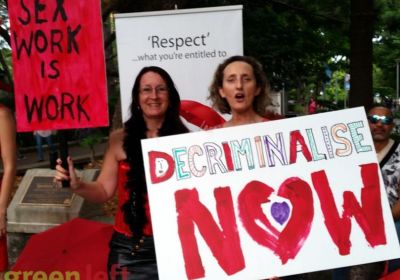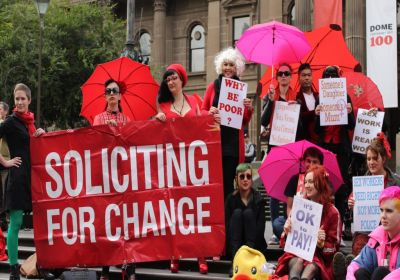Sex workers and their allies gathered on Gadigal land in Belmore Park to protest the Australian Border Force and various Australia-wide police being given permission to raid brothels. Paul Gregoire reports.
-
-
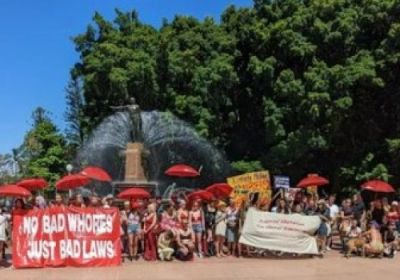
More than 100 people rallied at Hyde Park to demand the nationwide decriminalisation of sex work. Kerry Smith reports.
-
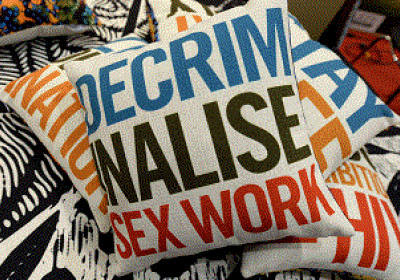
The case of the release from prison of repeat sex offender Edward William Latimer shines a light on WA's archaic laws which place sex workers in harm’s way, writes Emma Softly.
-
-
-
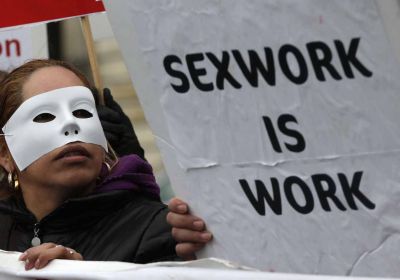 The Nordic Model is touted as a way to abolish the sex industry without harming or criminalising sex workers. Under the Nordic Model, at least in theory, providing sexual services in exchange for money is not criminalised, but paying for sexual services or living off the earnings of another’s sex work are criminal acts.
The Nordic Model is touted as a way to abolish the sex industry without harming or criminalising sex workers. Under the Nordic Model, at least in theory, providing sexual services in exchange for money is not criminalised, but paying for sexual services or living off the earnings of another’s sex work are criminal acts. -
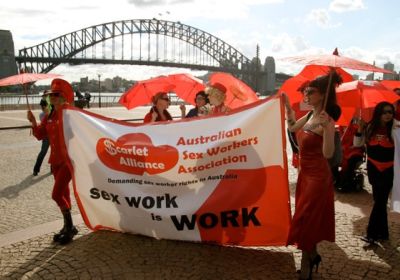 Sham contracting — when a company lists employees as contractors to avoid having to pay tax and benefits — and charging workers illegal fines are widespread practices in the sex industry.
Sham contracting — when a company lists employees as contractors to avoid having to pay tax and benefits — and charging workers illegal fines are widespread practices in the sex industry. -
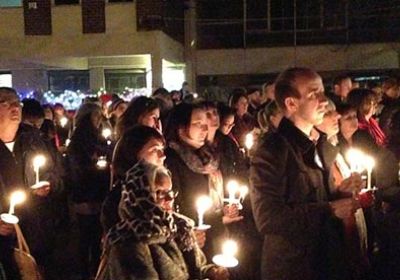 Several hundred people gathered in Greeves Street, St Kilda, on August 8 for a candlelit vigil for local street sex worker Tracy Connelly, who was murdered in the street on July 21. The vigil was a chance for her family, friends and, importantly, her community to honour her as well as protest against violence against women. The vigil was held outside the St Kilda Gatehouse, a drop-in centre and community resource for street sex workers.
Several hundred people gathered in Greeves Street, St Kilda, on August 8 for a candlelit vigil for local street sex worker Tracy Connelly, who was murdered in the street on July 21. The vigil was a chance for her family, friends and, importantly, her community to honour her as well as protest against violence against women. The vigil was held outside the St Kilda Gatehouse, a drop-in centre and community resource for street sex workers. -
Scarlet Alliance released this statement on July 19 *** Recent murders and violent attacks on sex workers have sparked an unprecedented wave of international action calling for an end to discrimination and criminalisation of sex workers. Scarlet Alliance, an Australian sex-worker association, along with our members and allies in Australia, joined the international protests in memoriam of sex workers Jasmine in Sweden and Dora in Turkey, murdered within one day of each other.
-
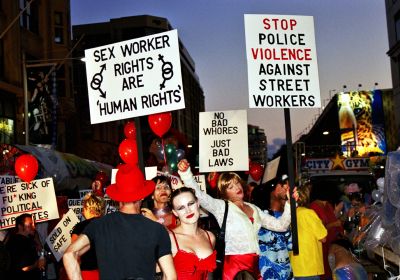
Liberal Premier Colin Barnett has proposed reforms to license and register some forms of sex work. And again people are referring to the bill as “legalisation” and “partial decriminalisation” when it is not. It’s deeply concerning when big party politicians and mainstream journalists do not understand the proposed sex-work laws, and describe them as the opposite of what they are. Most Western Australians seem unaware that Barnett’s proposed bill is unnecessary, perpetuates stigma towards sex workers and will result in worse working conditions.
-
Sex Work Matters: Power & Intimacy in the Sex Industry by Melissa Hope Ditmore, Antonia Levy & Alys Willman Zed Books When sex workers speak it is often with anger, frustration or reproach. This is because, more than any other group of workers, they have been defined, pathologised and moralised at by others. Sex Work Matters was a labour of love that emerged from a conference of sex workers held in New York in 2006. The result is a collection of essays by sex workers, academics and people involved in providing services to sex workers.
